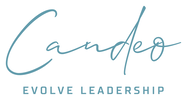|
I have always had an aversion to people who came across as very confident and self-assured. It may be because I so rarely experience that feeling myself and wondered how is it they be so certain and self-confident. On one hand there is something seductive and reassuring about that certainly but on the other I have a lurking suspicion that something is amiss. In these uncertain and polarised times ‘being right’ seems to pandemic. So, it seems fair to ask how do we know what we know? Neurologist Robert Burton in his book “On Being Certain” argues that certainty is not a conscious choice nor a rational thought process. Certainty or the feeling being right are sensations that arise that arise out involuntary brain activity independent of reason. Neuroscientist have also come to understand that feeling of being right or certain produces reward sensation in the brain much like an addict getting a hit. In fact, our brain’s crave certainty. It makes us feel safe. I guess it no surprise that in time of great uncertainty such as we are in that we see increase in polarization and self-righteousness. Our brains just want certainty and to feel safe. Harvard Psychologist Ellen Langer says about our thinking “We are frequently in error and rarely in doubt. Arthur Kahneman says of his entire Nobel prize winning research that “Most of us believe we are right most of the time about most things without noticing”. I have been curious about this because it is topic that has come up a lot in my coaching lately. Being right is a seductive trap for leaders. Our culture promotes and rewards leaders that act as though they smartest person in the room and have all the answers. One virtue that we can cultivate to overcome rush to be right is to develop “intellectual humility’ which simply means the ability to recognise that the things you believe might in fact be wrong. You only need to review this list of cognitive bias that have been well researched and documented over the last couple of decades to make you pause and wonder how do I know what I know? https://en.wikipedia.org/wiki/List_of_cognitive_biases Leaders are paid for high quality thinking and decision making every day so be vigilant for the ‘certainty trap’ which will undermine your thinking and performance. Red flags to look out for are feeling judgemental, defensive or superior. So what can you do? Practice metacognition or thinking about your thinking:
Stay curious and listen to learn rather than fix.
0 Comments
|
Leah SparkesLeah Sparkes Archives
August 2019
Categories |

 RSS Feed
RSS Feed